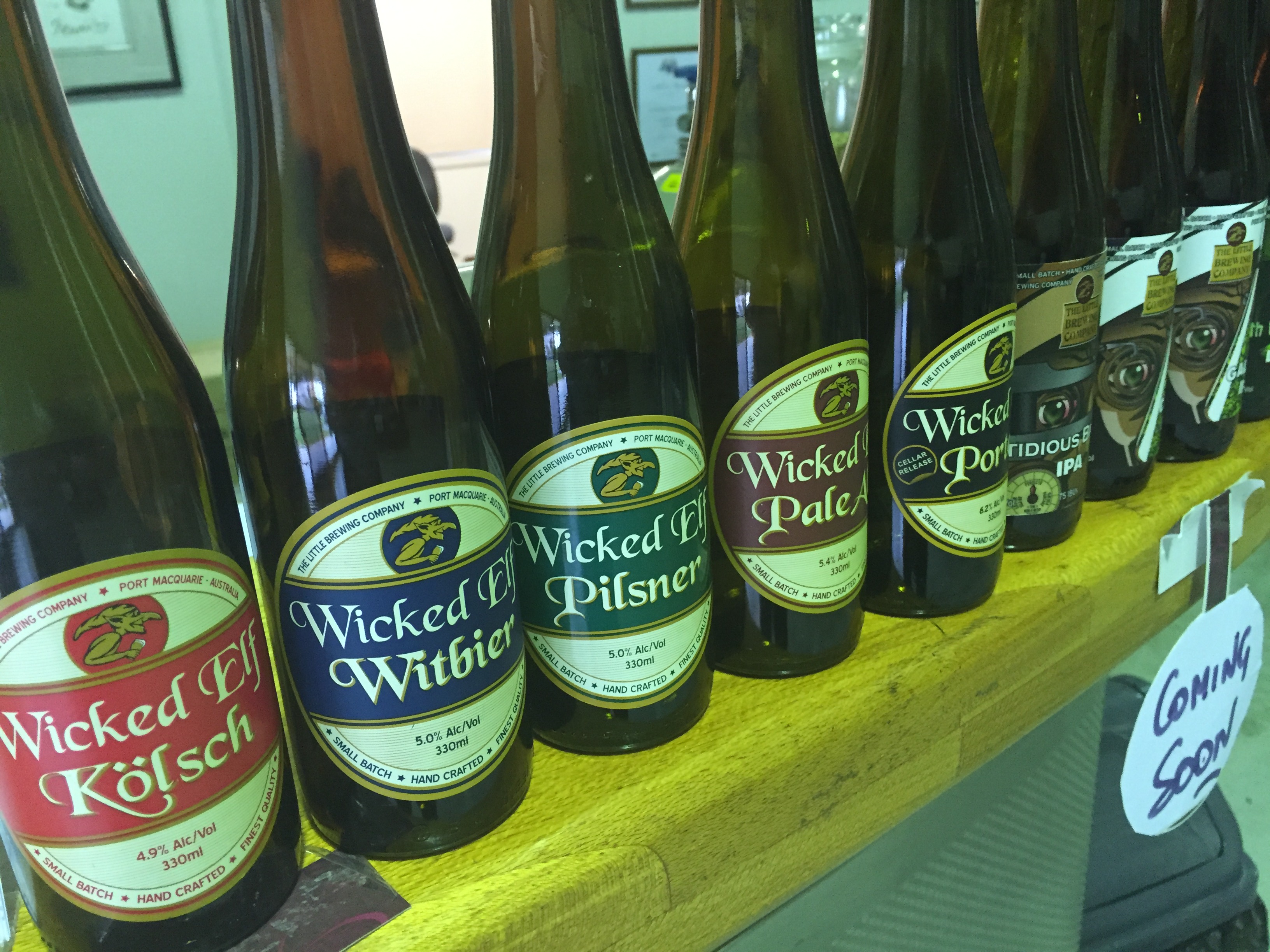
Stricken Little Brewing Co sold
The Little Brewing Company has been sold, after several months in voluntary administration.
The new owners are Port Macquarie locals with experience in hospitality and tourism.
The company was placed in administration last year, having amassed debts of close to $1.9 million with its largest creditors including the Australian Taxation Office ($580,000), National Australia Bank ($440,000), its landlord ($79,000) and packaging supplier Colna Print & Pak ($59,000).
While the sale price has not been disclosed, it is understood that there is going to be a significant shortfall to the secured creditors and, as a result, there will be no return to priority creditors or unsecured creditors.
The company was most likely insolvent from at least June 30, 2014, administrator Shaw Gidley advised creditors on August 30, 2016.
In the document co-founder Kylie Little is named as the sole director, with former directors Warwick Little and Wayne Farmer both having left the board in late 2015.
According to the report, Kylie Little attributed the company’s current financial position to “recruitment issues” that limited its ability to make sufficient product, machinery breakdown issues, a contract loss in late 2015 and increased competition in the NSW craft brewing industry.
Shaw Gidley found that while the above factors had contributed, the company had also been impacted by “lack of financial management and business acumen of the director and former directors”, as well as lack of sufficient cash flow and adequate working capital.
Three years of declining sales
In its August 30 report, the administrator advised creditors to reject a “highly speculative” Deed of Company Arrangement proposed by the company, which would have repaid them about 31c in every dollar owed, over a five-year time-frame.
The DOCA was based on “overly optimistic” assumptions that the company would increase turnover to $1.3 million in FY17, as compared with the $381,000 it achieved in FY16.
The report says Little projected the sales boost would flow from the brewery’s new taproom achieving additional sales of 40 kegs per week, a scenario Shaw Gidley found was unlikely.
“There is limited demand for specialist craft beer bars in the Port Macquarie area and we are aware that a major competitor has already established themselves in the marketplace with a cellar door/bar type setting,” the administrator said.
“We find that the assumption that turnover from bar sales will match a well-established competitor in anything but the medium to long term is an unrealistic expectation.”
Little assumed further gains from the company’s decision to focus its sales efforts on Melbourne rather than Sydney, because the latter market had been “effectively saturated with craft beers”.
“Whilst we agree that the relocation of the sales representative to Melbourne is a positive move, we consider that the level of sales estimated… is overstated and currently not supported by a detailed sales strategy and analysis,” said Shaw Gidley.
“It is very difficult to envisage the company meeting its projected turnover of $1.3 million in FY17 when turnover of just 65 per cent of that amount was achieved in FY14, 50 per cent in FY15 and most recently, only 30 per cent in FY16.”
Shaw Gidley recommended the company be wound up, under which scenario creditors would receive between 0c and 4c in the dollar.
ASIC records confirm that a resolution to wind up the company was subsequently passed on September 30.
The business and its assets have been sold as a going concern, and is now owned by Wicked Elf Beers Pty Ltd.
Open dialogue critical: Hopco
Key beer industry creditors of The Little Brewing Company include Cryer Malt owner David Cryer ($16,000) and Hopco ($5000), whose sales and marketing manager Jon Burridge welcomed news of the sale.
“Firstly it’s never good to hear that a brewery is in financial trouble, and let’s hope that with the growth of the industry we don’t see more of these situations,” Burridge told Australian Brews News.
“The Little Brewing Company has purchased hops from Hopco since 2007 and it’s great to hear about the sale, which we sincerely hope can resurrect their financial situation with their existing creditors,” he said.
“It’s important to any brewery that whilst they may be under financial hardship, they maintain honest and open communication with their suppliers. This way the suppliers can work with the brewery and help achieve the best outcome for all parties.”
The new owners of the brand have pledged to inject new business skills into the company while retaining its brewing talent.




